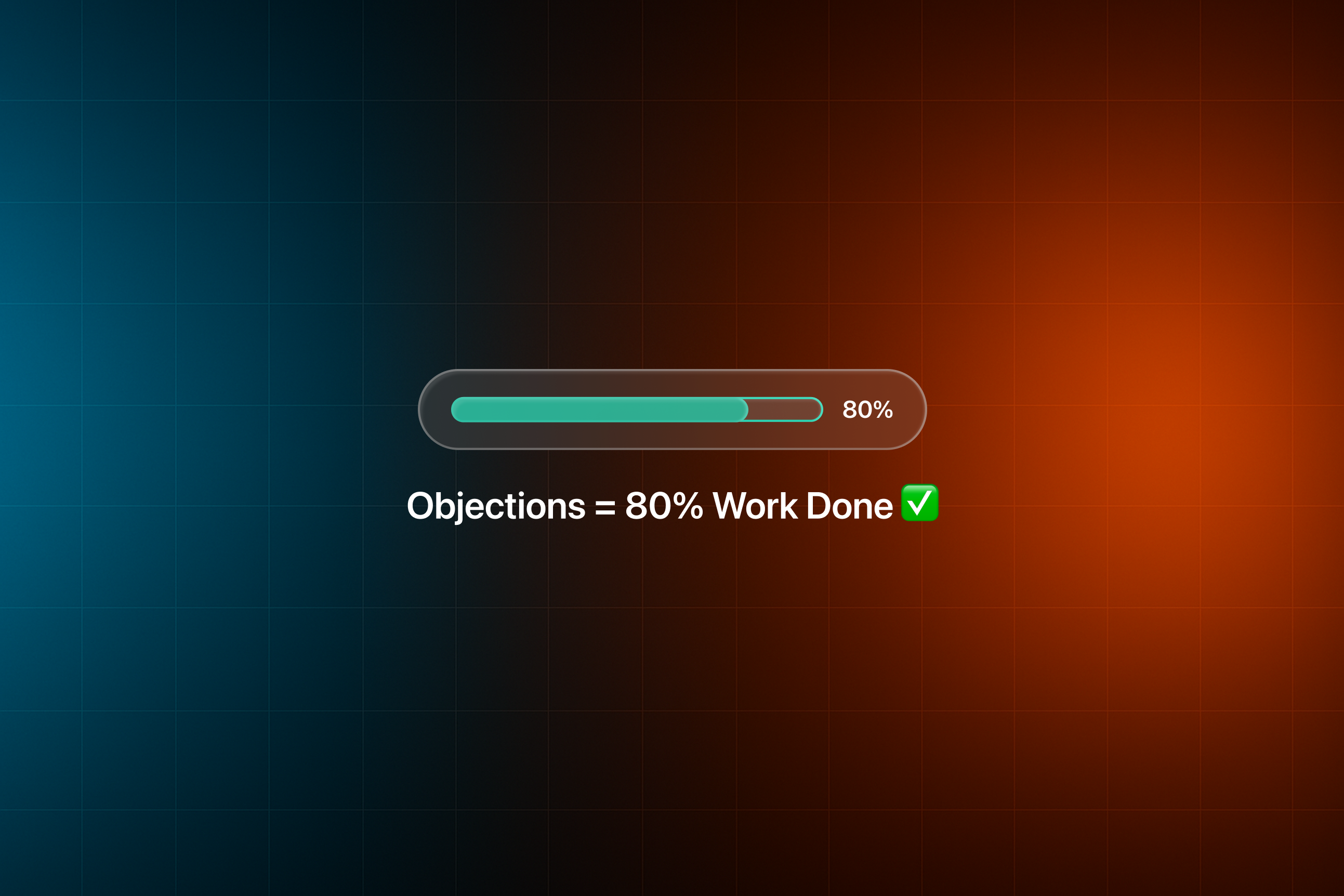
 Great sellers love objections. It means your prospect is already halfway to becoming your customer.
Great sellers love objections. It means your prospect is already halfway to becoming your customer.
1. It’s too expensive
💬 “We don’t have the budget for this.” Why it happens: They’re comparing to a cheaper solution or haven’t seen the value yet. How to respond:
- “The real cost is sticking with the current system and losing [deals/time/revenue] every month.”
- “If the ROI is clear, could the budget be unlocked?”
2. What’s the actual ROI?
💬 “What exactly do we get out of this?” Why it happens: They need numbers, proof, and outcomes. How to respond:
- Share a specific outcome or KPI improvement.
- “Our average customer sees a [X%] lift in [specific metric] within the first 90 days.”
3. Can we test it first?
💬 “We’d like to try it before committing.” Why it happens: They fear being locked into something that might not work. How to respond:
- “Instead of a blind trial, let’s run a 10-day pilot to show concrete impact right away.”
- Frame a low-friction win to build trust fast.
4. I need to talk to my team / boss
💬 “I’m not the only decision-maker.” Why it happens: Either they’re stalling or not the ultimate decision-maker. How to respond:
- “Happy to help you build a compelling case internally.”
- Try to loop in the decision-maker directly.
5. We already use something for this
💬 “We’re covered with our current tool.” Why it happens: They’re using a competitor or internal workaround. How to respond:
- “What’s currently frustrating or limited about your existing setup?”
- Highlight your unique differentiators or ways to stack on top of what they have.
6. What if it doesn’t work?
💬 “Sounds risky for us.” Why it happens: They’re worried about fit or failure. How to respond:
- “Totally get it — we’ve onboarded companies just like yours with great results.”
- Share proof (logos, testimonials, case studies).
7. What guarantees do we have?
💬 “What if we want to cancel?” Why it happens: They want to minimize risk and know the exit terms. How to respond:
- “We offer full onboarding, a success roadmap, and clear exit clauses if goals aren’t met.”
- Be transparent about your support, SLAs, and terms.

